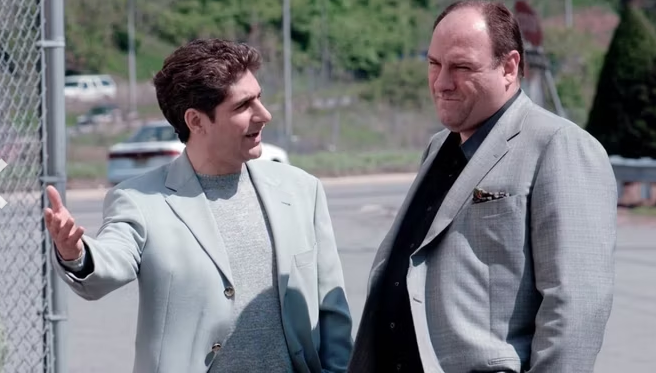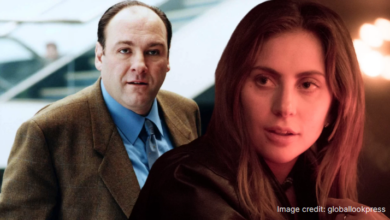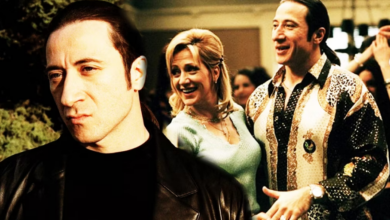This Sopranos Death Made the Biggest Impact on the Series

The Sopranos became known for its unexpected deaths, but the demise of one character had a greater impact than any other throughout the HBO series.
The hit TV show The Sopranos featured mobster Tony Soprano attempting to change as a person without physically altering his life, resulting in a display of continually questionable morality. The acclaimed HBO series began with a public panic attack that landed him in the hospital. He sought out therapy to get to the bottom of his issues, which always connected back to his sociopathic ways. The message was clear: Tony would never get better if he continued to murder and engage in organized crime.
In Tony’s line of work, however, murder was a common subject. He had to kill many people, including some close to him. Throughout the series’ run from 1999 to 2007, numerous individuals met their end at the hands of Tony or by his arrangement. At a certain point, he stopped using the murders as a business move and began to make them more personal, with those scenes being the hardest to swallow. No murder was more tragic and disgusting than the death of Tony’s nephew, Christopher Moltisanti.
Updated by Timothy Blake Donohoo on January 17, 2024: The Sopranos is still a classic TV series that’s hailed as the harbinger of prestige television. Known for its lovable yet dysfunctional cast of characters, perhaps no one was more emblematic of the series’ themes than Christopher Moltisanti, who died at the hands of his uncle, Tony Soprano. This death was particularly jarring for the series’ development, and it was later poetically reversed in The Many Saints of Newark.
Christopher Moltisanti Wanted Validation From Tony

Long before his death in a later episode of The Sopranos, Christopher Moltisanti lost his father at a young age — and The Sopranos left open the possibility that Tony was behind his disappearance. Despite this, Tony stepped in as a father figure, with Christopher constantly wanting to make him proud. Tony slowly puts more pressure on him throughout the series, though this is juxtaposed with constant opportunities and forgiveness. Other members of the Soprano branch were resentful of Chris’s success, believing nepotism gave him his power. This perspective caused issues within their group, so Chris often felt he wasn’t respected. Likewise, this sense of being “ostrafied,” as he called it, made him feel as if he was not meeting Tony’s expectations.
This desire for validation led Chris down a destructive path. He continuously ignored his dreams in favor of making Tony happy. Not living as his true self ultimately made any kind of vulnerability impossible, and he would frequently react violently. The self-hatred Chris experienced also led him to drug addiction, more so as Tony’s expectations of him continued to rise. In addition, Chris never knew where he stood with his uncle, and that was the true source of his insecurity and desperation. Inevitably, it caused a further downward spiral of addiction that later resulted in Christopher Moltisanti’s death.
Christopher Grew as a Character — but It Didn’t Last

At the start of The Sopranos, Christopher Moltisanti had dreams beyond working for the mob. As the series progressed, however, he continuously put the group at risk through mistakes made while under the influence of his addiction. Finally, Tony forced Christopher into rehab in Season 4, Episode 10, “The Strong, Silent Type” — by threatening to kill him if he didn’t become sober. Due to this sure threat and a truly illuminating intervention, Christopher learned a lot about himself and his triggers as he emerged from the facility with a clean bill of health.
Unfortunately, no one in the mob wanted him sober, with many disliking his newfound refusal to drink. Christopher also couldn’t numb himself to drown out the guilt from the horrible things he’d done. Although he experienced significant growth through his rehab experience, he couldn’t continue to improve as a person because his obligations in the mob limited him. Christopher reverted to his old ways after the death of his fiancé, Adriana La Cerva. This was all after he’d given everything to receive Tony’s validation and failed to receive it consistently. There were always new hoops to jump through, making what happens to Christopher in The Sopranos almost expected. While Christopher Moltisanti’s death was definitely a long time coming, the manner in which he died was a particularly harsh demise.
Christopher’s Death Hit the Hardest

In Season 6, Episode 18, “Kennedy and Heidi,” Tony killed Christopher after Christopher crashed a car with Tony in the passenger seat. Tony decided it was finally time to rid himself of his “weak, lying drug addict” of a nephew and suffocated him. This death was the harshest in Sopranos history because the audience knew how much Chris had suffered to gain acceptance from Tony. He went to rehab because Tony told him to. He let Tony have Adriana killed after revealing that Adriana was an FBI informant. He gave his entire life to Tony — and his reward was being murdered by the very man he looked up to.
Christopher Moltisanti’s death was also hard for Tony to endure. He acted as if he wasn’t bothered by the event, but he later had a dream where he confessed to killing his nephew along with other close colleagues and friends. Tony knew that all Christopher wanted was validation and love, but he gave him the exact opposite of that. Christopher’s murder represented the end of Tony’s humanity. He forever had to live with murdering someone he had once considered another son. In Season 5, Episode 12, “Long Term Parking,” Christopher called Tony “the man I’m going to Hell for,” and he turned out to be right.
The Sopranos Movie Turned a Young Tony Into AJ — and Christopher

The 2021 movie The Many Saints of Newark was a prequel to The Sopranos, with a young Tony Soprano (played by Michael Gandolfini, the son of the late Tony Soprano actor, James Gandolfini) being one of the main characters. The true protagonist, however, was Dickie Moltisanti (played by Alessandro Nivola), who acted as Tony’s “uncle.” In actuality, Dickie was related to Carmela De Angelis, who Tony later married as an adult. In many ways, Tony’s youth made him seem similar to his whiny, incompetent son, AJ. At the same time, there were several allusions and similarities to Dickie’s son, Christopher Moltisanti.
Tony tries to do everything with his Uncle Dickie, looking up to him more than his own father. This is due to Johnny Soprano not really being as present as he could have been, mimicking Dickie not being around to raise Christopher due to his death. At one point, Dickie “ostrafies” Tony, making the young man want nothing to do with the mob. In many ways, it echoes the insecurity and dysfunction that Christopher had in relation to Tony. Dickie saw that Tony’s attempts to impress him and follow in his footsteps would only lead to the boy’s downfall. It was a foreshadowing of how, despite his attempts to make movies in Hollywood and expand beyond the “family business,” Christopher Moltisanti was doomed by his mob associations.
The fact that ultimately cements this isn’t just Christopher Moltisanti’s death in The Sopranos but the beginning and ending of The Many Saints of Newark. Michael Imperioli’s deceased Christopher is a loose narrator for the movie, and in its final moments, he notes that Tony was, in fact, the “guy he went to Hell for.” The irony is that Tony can also be blamed for the destroyed reputation of Dickie, as the pills that Christopher’s father was found with when he was killed were meant to help Tony’s mother. The result was that many believed Dickie to be a mere junkie, something that his son later became. This made both deaths poetically set up and even more tragic.




